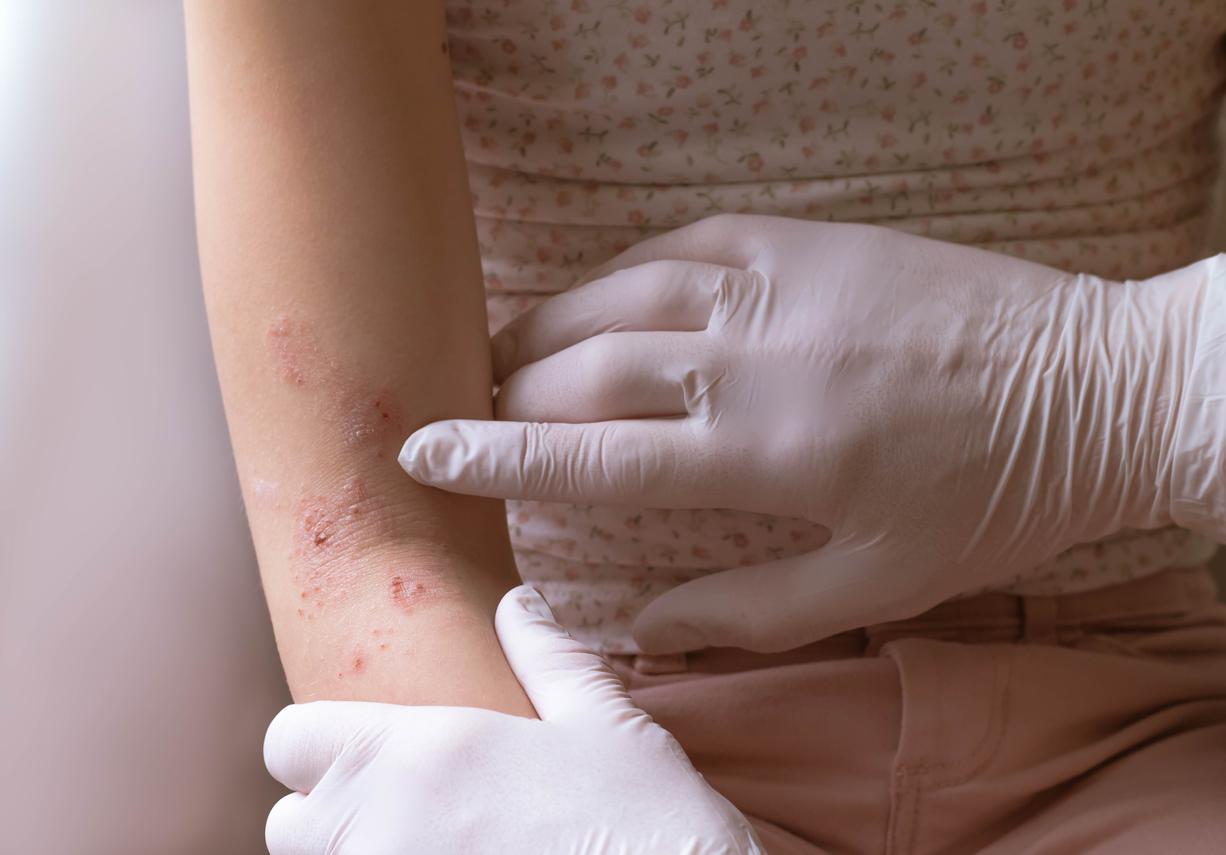Dietary intake of vitamin E may potentially help reduce the risk of atopic dermatitis.

- Atopic dermatitis, or eczema, is a chronic inflammatory skin disease caused by genetic and environmental factors.
- A study has established a cause and effect link between vitamin E intake and this skin condition.
- In contrast, this was not observed between vitamin C, carotene and retinol and eczema.
Itching, redness, scabs, dry skin… These signs suggest eczema, also called atopic dermatitis. As a reminder, this is a chronic inflammatory skin disease that is not contagious and develops in flare-ups. Mainly affecting children, this condition “occurs on a particular genetic background which promotes the development of allergies (atopy) during exposure to environmental allergens (mites, animal hair, pollen, etc.)”, noted Health insurance. In addition to a family history of atopy, eczema can be caused by both immunological and cutaneous abnormalities. Environmental factors (excessive hygiene, poorly ventilated habitat, presence of domestic animals, etc.) can also be involved.
To study the causal relationship between dietary intake of antioxidant vitamins and eczema
According to researchers from the University of Chinese Medicine in Beijing (China), this skin disease is strongly associated with oxidative stress. “Increased intake of antioxidants could potentially reduce the risk or alleviate symptoms of this condition. However, this argument is contested.” That’s why, in a new study, scientists conducted a “Mendelian randomization analysis” to explore the cause-and-effect relationship between dietary intake of antioxidant vitamins (vitamin C, vitamin E, carotene, and retinol) and atopic dermatitis.

Atopic dermatitis: vitamin E intake may have a protective effect
The results, published in the journal Skin Research and Technologyrevealed a causal relationship between vitamin E intake and atopic dermatitis. However, this was not found between the other three vitamins (vitamin C, carotene, and retinol) and eczema. In another sensitivity analysis, “none of the single nucleotide polymorphisms were detected as heterogeneous and no significant pleiotropy was observed.” Although vitamin E intake may have a protective effect against atopic dermatitis, intake of dietary antioxidant vitamins to prevent or treat atopic dermatitis does not appear to be a protective factor against atopic dermatitis, according to the authors.


















